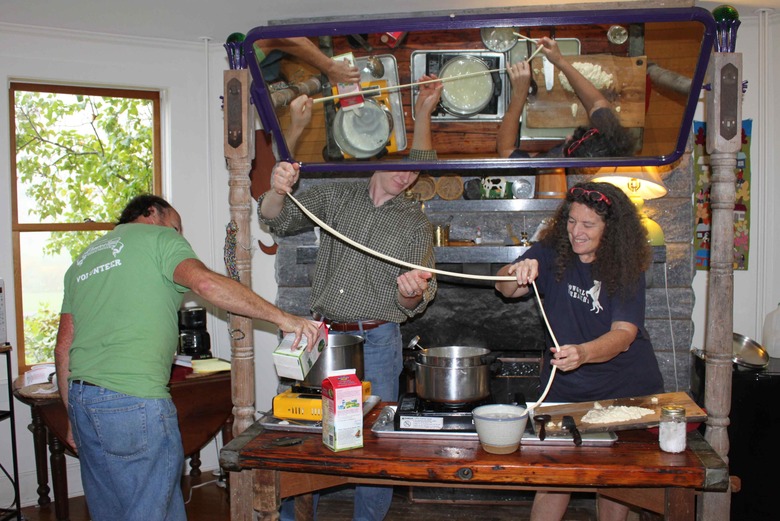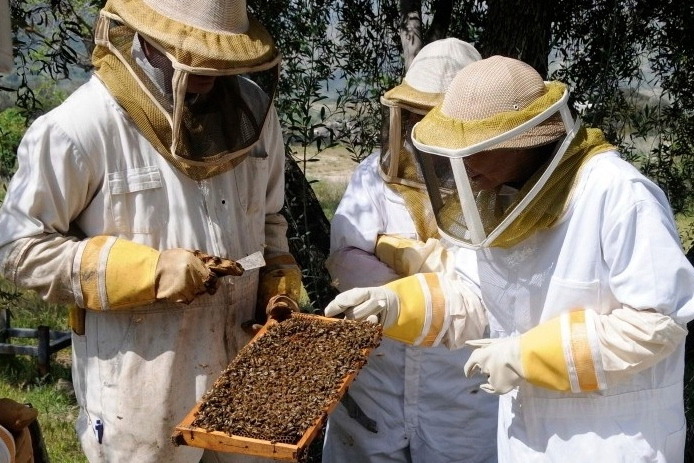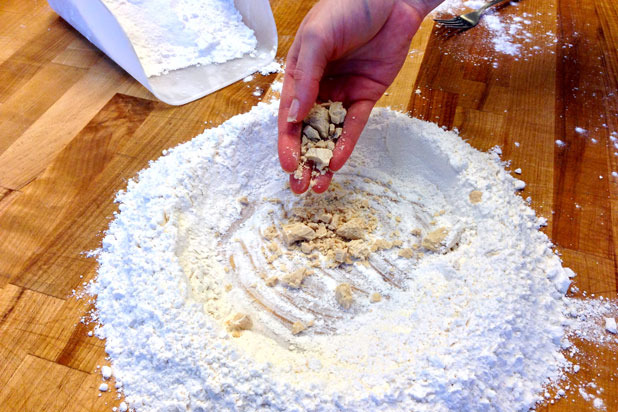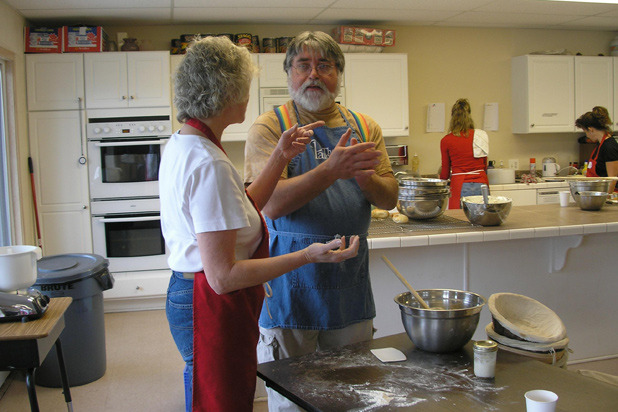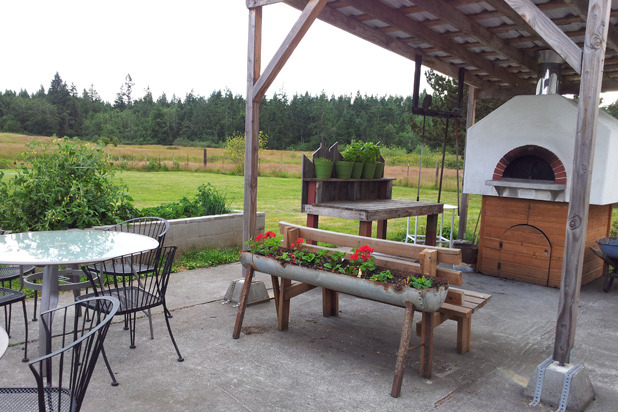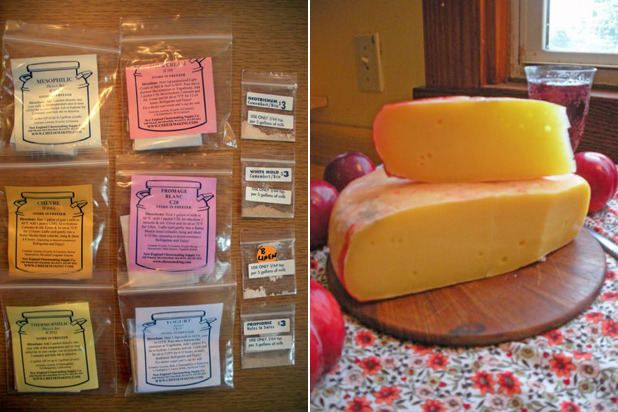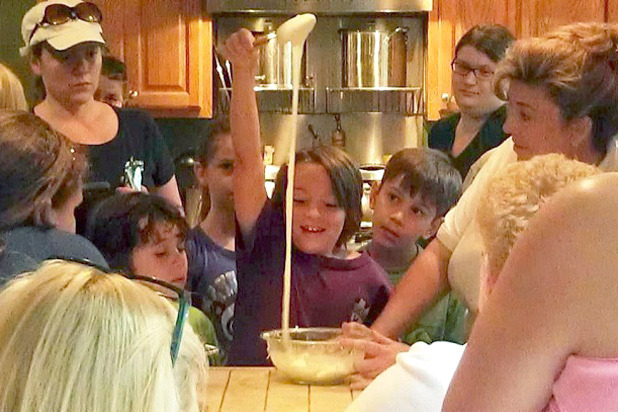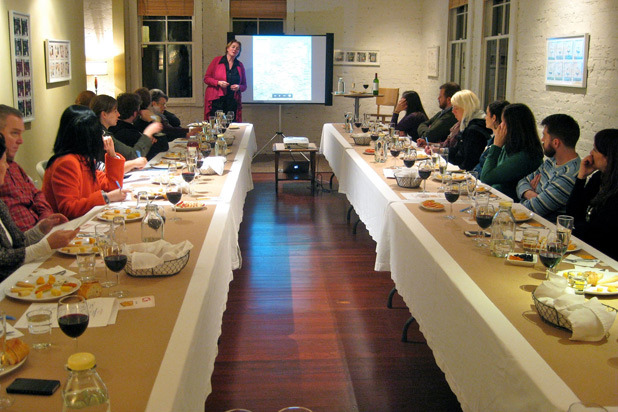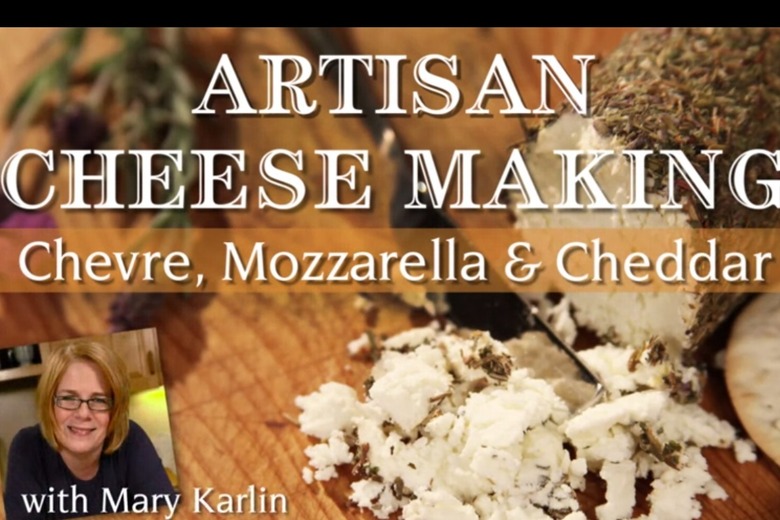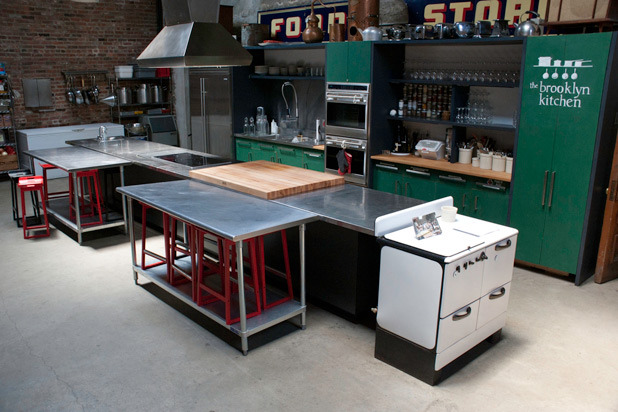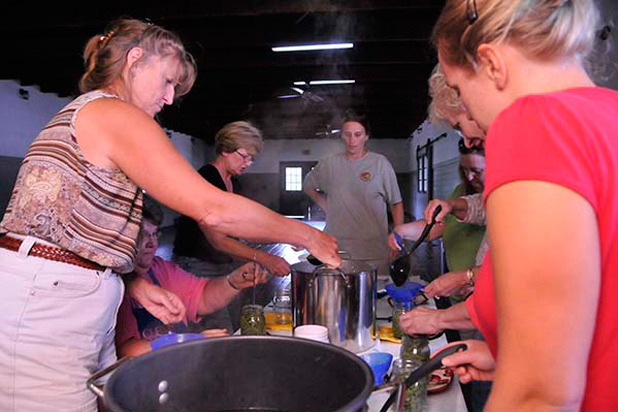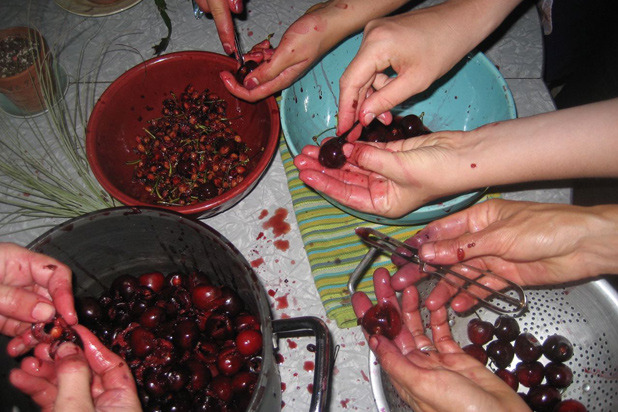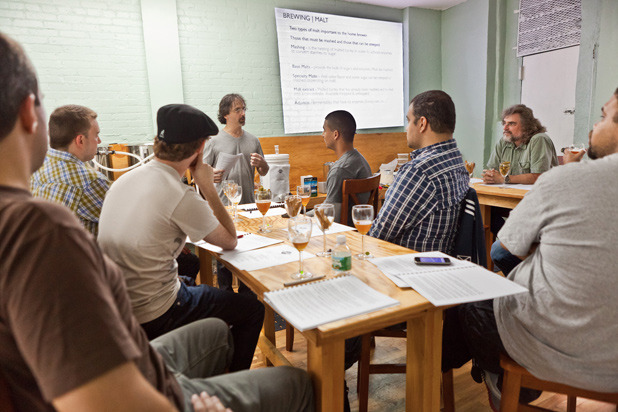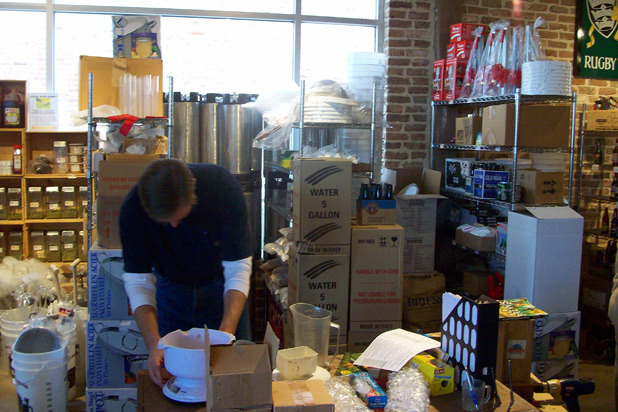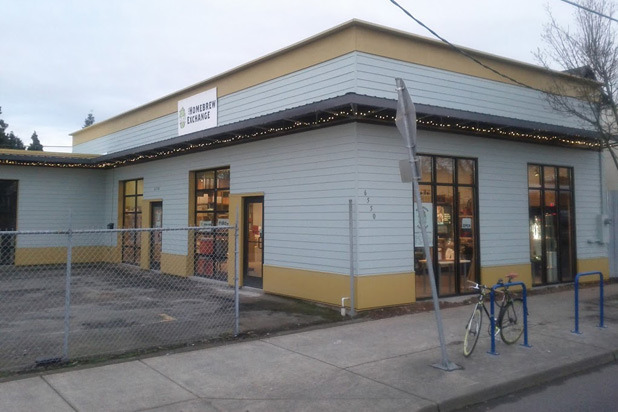8 Food Classes That Will Change Your Life (And 32 Amazing Runners-Up) (Slideshow)
Beekeeping West: Los Angeles County Beekeepers Association, La Crescenta, Calif.
What makes the Los Angeles County Beekeepers Association (LACBA)'s class The Daily Meal's favorite beekeeping class? Its annual nine-class Beekeeping 101 course is both unbeatably thorough and unbeatably priced, and students get intimate, hands-on instruction with active beekeepers that love what they do. Classes meet once each month in the yard of Bill Lewis' beekeeping business, Bill's Bees. Lewis and Clyde Steese, both LACBA members and former presidents, teach the class, which covers everything from a hive's assembly and management to its harvest.
"Bees should not be feared, but embraced and nurtured for the role they play in our food production," Lewis, who has been keeping bees for more than 20 years, told The Daily Meal. "Our goal is to walk a 'NewBee' through an entire year so that a new colony started in the spring survives through the winter and emerges strong and healthy in the spring ready to produce a crop of honey," he said.
Cost: Free for LACBA members ($10 annual membership) for nine classes over the course of nine months; requires a bee suit
Beekeeping Northeast: The Honey Exchange, Portland, Maine
The Honey Exchange offers a beginning beekeeping class over the course of three seasons so that students get a sense of a hive's yearlong cycle. Master beekeeper Phil Gaven teaches the classes, which are part lecture and part hands-on experience, and cover everything from installation of a hive to disease control and honey harvesting. The Honey Exchange is primarily a store, and Gaven keeps it stocked with varieties of honeys and honey products like mead.
Cost: $20 for each individual two-hour class or $50 as a three-class course
Beekeeping Midwest: Long Lane Honey Bee Farm, Fairmount, Ill.
Long Lane Honey Bee Farm is totally devoted to apiary education: David and Sheri Burns keep their own bees, sell beekeeping equipment to a customer base of thousands, and share their knowledge with the students who take their basic (and advanced) beekeeping classes, which they offer throughout the summer. Long Lane Honey Bee Farm also gets our vote for the best online beekeeping class, thanks to its detailed online guide and podcast.
Cost: $89 for the Basic Beekeeping course, which includes a day's worth of instruction, a hive tool, and outlines of the teachings
Beekeeping South: North Carolina State Beekeepers Association, N.C.
Why did we choose to recognize the entire North Carolina State Beekeepers Association? We couldn't choose between all of the (28!) classes they offer! The NCSBA is split into chapters across the state's counties, offering beginning and advanced beekeeping courses that will teach apiary basics to anyone interested. Most classes include a brief lecture and some time out in the field interacting with bees or learning necessary beekeeping skills like assembling a hive.
Cost: Free to $75, depending on the county; some classes include membership with that county's beekeeping association, a textbook, and/or lunch
Beekeeping Online: Long Lane Honey Bee Farms
Long Lane Honey Bee Farm — which we also believe to offer the best beekeeping program in the Midwest — has a website that boasts extremely detailed, thoughtful beekeeping instructions. The farm's owners, David and Sheri Burns, also have a series of educational podcasts, and sell any equipment you might need to get started on their website. One-stop beekeeping!
Cost: Free
Bread-Baking Northeast: King Arthur Flour Co., Norwich, Vt.
Nothing can beat that intensive four-day Bread: Principles & Practice course offered at King Arthur Flour's Baking Education Center, which is why it's The Daily Meal's number-one choice of bread-baking class. Students in the class will learn about baking all kinds of breads, including whole grain, sweetened, sourdough, and starter-based breads, not to mention quick breads and scones. We love the Baking Center for its thoroughness and wide range of classes: The Baking Center has less expensive, afternoon-long bread-baking courses, too, such as Bread 101, Rye Breads at Home, and The Magic of Wild Yeast: Sourdough.
And how about their commitment to teaching? Amber Eisler, an instructor at the Baking Education Center, loves to encourage and empower students in the bread-baking classes she teaches. "I love seeing how happy people are when they realize 'I really can be a successful baker,'" she told The Daily Meal. Eisler's hope for her students is that they will continue to bake at home, and "that they will feel confident in their ability to bake delicious and nourishing food for their family and friends."
Cost: $425 for four days of instruction
Bread-Baking Midwest: Baker & Nosh, Chicago
Baker & Nosh, the popular bakery on Chicago's North Side, offers a Bread Basics class that teaches students to make basic white dough, whole-wheat dough, and sourdough starters. Classes are small (only six students), ensuring that everyone has a chance to get in up to their elbows in flour. The class also covers mixing, shaping, and baking techniques. Baker & Nosh also holds a croissant class for those brave enough to tackle laminated dough.
Cost: $75 for three hours of instruction, an in-class snack, a packet of recipes and techniques, and a 10 percent store discount
Bread-Baking South: Bake with Mike, Sanger, Texas
"Would you like to eat foods and be able to pronounce the names of all the ingredients? Would you like to be able to bake breads that please you, please you in ways no other breads can?" If you answered yes to either of these questions, which Mike Avery poses front and center on his website, then his four-hour Introduction to Sourdough Bread Baking course is the class for you. Sanger teaches students to make several kinds of sourdough bread and sourdough pizza dough, as well as how to care for a sourdough starter. We love that Sanger's sense of humor permeates his classes, and he offers a variety of them, such as a bagel-making workshop (BagelMania!) and a pie-baking class (Simple Simon Became a Pieman).
Cost: $75 to $100 for four hours of instruction, a pizza lunch (which you make in class), a sourdough cookbook, a jar of sourdough starter, and the bread you bake in class
Bread-Baking West: Hains House Artisan Bread, Olympia, Wash.
Food vacations are all the rage, and the Artisan Bread Baking package offered at Hain House Artisan Bread is like no other. Students spend three days at Hains House, where they stay in the on-site bed-and-breakfast and attend the class, which is both beginner-friendly and comprehensive. Students leave knowing how to make baked goods they never thought they could, like focaccia, cinnamon rolls, German-style white bread, bagels, pizza, sweet bread, and more.
Cost: $395 includes three days of instruction, recipes, lodging in their on-site bed-and-breakfast, and all meals
Bread-Baking Online: The Fresh Loaf
The Fresh Loaf is an online community for "amateur bakers and artisan bread enthusiasts." The site includes a forum, written lessons, and a very detailed handbook on the A to Zs of bread baking, including photos, science, and recipes. Have a question about bread-baking? Not sure where to begin? Head here: The Fresh Loaf is encyclopedic, with tips and advice from people who love to bake bread.
Cost: Free
Butchering West: Portland Meat Collective, Portland, Ore.
Take The Daily Meal's top pick for butchering classes at the Portland Meat Collective. What makes it different? For one thing, the Portland Meat Collective is not a butcher shop. Rather, it serves as a liaison between local farmers and local people who want to learn to butcher their animals. Having successfully connected farm and table, PMC founder Camas Davis and other instructors then teach those people how to break down whole animals. Basic Pig Butchery is one of the most popular classes at Portland Meat Collective: students turn a whole hog into recognizable cuts of meat. The PMC offers a range of classes in animal butchery, from Field to Fork: Venison Hunting and Butchery to a Sausage Making workshop.
"We're going to tend to support an industrial meat system if we don't understand what goes into it," Davis, who became interested in the food revolution when she moved from New York to Portland, Ore., told The Daily Meal. Her goal as an instructor is to help her students understand everything that happens before a pig becomes a pork chop — and to encourage them to "go beyond the pork chop." Her students come from all walks of life, but all of them share a curiosity about food. "The more we get into this process and learn about it, the more we come to appreciate the true cost of meat and the value of true craftsmanship," she said.
Cost: $265 for four hours of instruction and 30 to 40 pounds of the meat to take home
Butchering Northeast: Fleisher's Grass-Fed & Organic Meats, Brooklyn, N.Y.
Yes, the $1,500 price tag is a big one — but for the serious meat or butchery enthusiast, the Butchery 101 course at the acclaimed butcher shop Fleisher's may just be worth it. Over the course of three intensive days of study, the team at Fleisher's leads students through the basics (knife skills and anatomy) and ends with full-animal butchery, cooking demos, sausage-making, and more. The Brooklyn spot has received lots of recognition for its commitment to detail — sustainable meat production is part of its mission — and you have to agree.
Cost: $1,500 for three days of instruction, and a set of knives, and a knife guard to take home
Butchering Midwest: Rocky Mountain Institute of Meat, Denver
The Rocky Mountain Institute of Meat's classes, led by master butcher and RMIM founder Mark DeNittis and his assistant Jason Nauert, feature nose-to-tail treatments of locally raised animals. DeNittis and Nauert are devoted to ethical butchery, and their Whole Hog Butchery course gives students the opportunity to break down a responsibly raised hog carcass sourced from nearby Northern Colorado. The RMIM also offers recreational butchery classes in beef butchery, sausage making, and even turducken making.
Cost: $240 for four hours of instruction and about 15 pounds of meat
Butchering South: The Local Pig, Kansas City, Mo.
The charcuterie and butchery Local Pig is a Kansas City favorite, and they've expanded their reach even further with a food truck, Pigwich. All their meat — whether you're buying it in their butcher shop, eating at Pigwich, or taking one of their Whole Hog Butchering classes — is locally and responsibly raised, and hormone, steroid, and antibiotic free. The class gives students the opportunity to break down an entire pig and take home the cuts they make. The shop also offers an Introduction to Sausage Making class.
Cost: $100 per person for an afternoon of instruction, snacks, and about 10 pounds of the meat to take home
Butchering Online: Farmstead Meatsmith's 'The Anatomy of Thrift: Side Butchery'
The Anatomy of Thrift: Side Butchery is a beautifully shot instructional video on how to break down the side of a hog into cuts of meat. Brandon Sheard, one of the owners of Farmstead Meatsmith, a butchery on Vashon Island, Wash., narrates with a sense of humor as he walks viewers through the process. The 25-minute video begins with an abridged, illustrated history of butchery before Sheard begins to break down the pig. Thanks to a Kickstarter campaign, the same team is working on creating instructional videos on other home butchery practices, including curing and making blood sausage.
Cost: Free
Cheesemaking Northeast: New England Cheesemaking Supply Company, Ashfield, Mass.
It makes a difference for a student when a class' instructor loves what she does, and Ricki Carroll really loves cheese — and loves making it. In The Daily Meal's favorite cheese making class, Cheesemaking 101, Carroll leads students through a comprehensive, daylong cheesemaking itinerary that includes farmhouse Cheddar, fromage blanc, crème fraîche, queso blanco, mascarpone, ricotta, mozzarella, and more.
Carroll, who describes herself as eccentric and is affectionately known as "The Cheese Queen," has been making cheese since 1976. "We started a company selling cheesemaking supplies and thought most people were in our predicament, having the dream but not enough knowledge," she told The Daily Meal — and this led to her first cheesemaking classes. "So we started workshops for six in our home and as we learned we taught as much as we knew. Today I teach classes in the same home to 42." In addition to teaching her students about how to make cheese, she wants them "to know more about where our food comes from and the realities and falsehoods of the ins and outs of our food supply today."
Cost: $175 for a day's worth of instruction and lunch
Cheesemaking Midwest: Merryl Winstein's Cheesemaking Classes and Raw Milk, St. Louis
Merryl Winstein, an award-winning cheesemaker and goat farmer, wants you to learn how to make cheese. With your own two hands. And in her daylong cheesemaking course, students do just that. The course covers hands-on participation in the production of an impressive seven cheeses: mozzarella, Cheddar, Brie, chèvre , ricotta, blue cheese, and Swiss, as well as yogurt and sour cream. Students don't take home the cheese they make in class, but they do get an instructional booklet and the practical experience to create artisanal cheeses at home.
Cost: $185 for a day's worth of instruction and a recipe booklet
Cheesemaking South: Standing Stone Farms, Gallatin, Tenn.
At Standing Stone Farms, we see farm-to-table cuisine at its most basic and best: Students get to engage with the cheesemaking process in full, from meeting the goats that produce the milk to creating the cheese — two different kinds of feta, chèvre, mozzarella, and butter — to enjoying it at a BYOB artisan cheese lunch after class with the farm's owner, Paula Butler.
Cost: $195 includes instruction, lunch, and a cheesemaking booklet
Cheesemaking West: The Cheese School of San Francisco, San Francisco
If you live in California's Bay Area, you're close to the Cheese School of San Francisco, where you can sample and learn to make nearly any basic variety of cheese at one of their regular, afternoon-long cheesemaking classes, like the comprehensive "Basic Cheesemaking: Ricotta, Mascarpone, Panir, & Chèvre." Students will learn about cheese science and get to take home some of the cheese that they make. The school also offers a variety of other cheesemaking courses, like a "Burrata & Mozzarella-stretching" class and a "Cultured Cheeses: Chevre, Fromage Blanc, Farmhouse Cream Cheese, & Feta" class.
Cost: $120; students take home some of each kind of cheese
Cheesemaking Online: Artisan Cheesemaking at Home on Craftsy
You can now have a human being — not a guidebook — walk you through the basics of at-home cheesemaking, without ever leaving the couch (or the kitchen): Mary Karlin, author of Artisan Cheese Making at Home, has filmed an online nine-lesson video course that teaches viewers how to make chèvre, mozzarella, and Cheddar. More than 1,000 students have already enrolled in the course, which has an almost-five-star review on its host website and a following that reports, "It helps to see the techniques used vs. just reading instructions in a recipe."
Cost: $40 one-time purchase; video includes downloadable printouts
Coffee South: Counter Culture Coffee, Asheville, N.C.; Atlanta; Chicago; Boston; Durham, N.C.; New York; Philadelphia
Counter Culture supplies some of the best coffee shops in the country with beans, but they want everyone to be able to brew a great cup at home: their Brewing Basics course, The Daily Meal's top choice for coffee classes, teaches students how to brew the very best cup they can; it introduces the appropriate grind size, emphasizes the importance of coffee's brewing time, and helps students create their ideal coffee-brewing recipe. Counter Culture's headquarters are located in the South, but they have locations around the country, many of which offer education opportunities in a variety of classes including a brewing basics course, a beginner espresso lab, and a milk chemistry lab.
"I started as an enthusiastic coffee drinker," Lydia Iannetti, Counter Culture's counter intelligence manager, told The Daily Meal. Spending so much time in coffee shops eventually inspired her to get a job at one, and now as an instructor at Counter Culture, she enjoys helping coffee-lovers feel confident making a great cup of coffee. "I love to make coffee with people and show them how much control they can actually have over how their coffee tastes — whether it's perfecting a brew method, or identifying coffee preferences to guide purchasing."
Cost: $75 for two hours of instruction, a $15 store credit, a Counter Culture ceramic pour-over brewer, and filters
Coffee Northeast: Joe the Art of Coffee, New York City
Joe is an independent coffee roaster, café, and New York City favorite that's often recognized for its high-quality roasts (it came in ninth in The Daily Meal's ranking of America's Best Coffee Shops. In addition to selling coffee, Joe also offers a two-session Brewer's Workshop that teaches students about how coffee beans make it into our cups, introduces coffee science, and teaches pour-over brewing methods. Joe also offers a wide variety of other classes for coffee enthusiasts, from milk steaming techniques, cupping, espresso 101, and a barista training course.
Cost: $175 for two classes, each three hours long
Coffee Midwest: Stone Creek Coffee, Milwaukee
What do we love about Stone Creek Coffee? As an independent roaster as well as a café, they are truly excited about introducing the public to the finer points of coffee. Not only do they offer coffee courses — like their Home Barista class, which introduces students to espresso techniques like pulling perfect shots, steaming milk, and creating espresso drinks like lattes and cappuccinos — but they also offer factory tours, monthly coffee seminars, and free cupping sessions.
Cost: $35 for three hours of instruction and a tour of the Stone Creek Coffee Factory
Coffee West: Klatch Coffee, Upland, Calif.
Not sure which of those pour-over brewers — Chemex, V60, Bee House — to choose, or even how they work? Klatch Coffee has you covered. Their Pour Over class teaches students how make your morning joe with each of these brewing techniques so that you can pick the perfect bean, grind size, and equipment — and brew the perfect cup. Klatch also offers classes in barista training, classes for more experienced home baristas (like a latte art class) and classes on how coffee beans become the drink we so enjoy.
Cost: $20 for two hours of instruction
Coffee Online: Stumptown Coffee Roasters
Stumptown Coffee is the darling of many coffee lovers — it came in seventh place in The Daily Meal's ranking of America's Best Coffee Shops. They don't offer regular classes in their shops, but their website helps home coffee brewers make the best cup they can. Their series of Brew Guides include step-by-step instructions accompanied by photographs to help any home brewer make the perfect cup.
Food Preservation Midwest: The Jam and Jelly Lady, Lebanon, Ohio
The Jam and Jelly Lady, Sonya Staffan, has dedicated her life to preserving food. Why? "I love to eat, pure and simple," she told The Daily Meal. She teaches The Daily Meal's favorite food preservation class, a Canning Boot Camp that's perfect for the novice canner or anyone interested in putting up the harvest to enjoy year-round. The full-day class that covers "a bit of physics, a spoonful of microbiology, buckets of food safety, plus a huge dollop of canning wisdom." Staffan also offers a variety of smaller-scale canning and preserving classes.
"Canning is earthy, scientific, and creative all at the same time," Staffan, who learned to preserve food with her grandmother and great-grandmother, told us. "It brings people back to their roots, while challenging them to control their kitchen environment, and yet enjoy the ability to create their signature preserves." Canning gives people the ability to make recipes that can't be bought, she said.
Cost: $80 for a daylong class, including lunch, snacks, and two full jars to take home
Food Preservation Northeast: The Brooklyn Kitchen, Brooklyn, N.Y.
The Brooklyn Kitchen, located in Brooklyn's Park Slope neighborhood, is part kitchenware store and part education center, with a mission to help home cooks learn new kitchen skills — like canning. "Canning can be daunting for the novice jam-maker," reads the description for their fairly regular Jams, Jellies, & Preserving class, which is taught by Food in Jars author Marisa McClellan (the writer behind our favorite online food preservation class). Students won't feel daunted after the class, as they will leave with knowledge of the science, safety, and technique behind preserving. The Brooklyn Kitchen also offers other regular pickling and canning classes (among other food classes).
Cost: $65 for two hours of instruction and preserves to take home
Food Preservation South: Carolina Canning, Clemson, S.C.
Carolina Canning is a program offered through the Clemson University Cooperative Extension, and is dedicated to teaching anyone interested to preserve food. For an unbeatable price, they offer a Pressure Canning class that teaches the basics of safe, effective pressure canning for beginning canners. The group also offers a variety of summer classes in counties across the state, on topics ranging from canning to freezing and other food preservation techniques.
Cost: $30 includes three to four hours of instruction, recipes, and a Ball Blue Book
Food Preservation West: Institute of Urban Homesteading, Oakland, Calif.
The Institute of Urban Homesteading — whose foraging class we also recommend — offers a "Canning Extravaganza" course throughout the summer and early fall that covers techniques and tips for how to make jams, jellies, pickles, tomato sauce, salsas, and more. It fits in with their mission to help people feel more self-sufficient — and what better way than to feed yourself with food you've canned yourself?
Cost: $50 to $80 plus a $15 supply fee for four hours of instruction; students take home three full jars
Food Preservation Online: Food in Jars
Marisa McClellan, the author behind the popular Food in Jars cookbook, offers an extensive guide to canning on her website. Her guide, Canning 101, provides all the instruction one might need to put up the harvest. It's friendly but comprehensive, and includes topics such as "A Field Guide to Jars," "Why You Shouldn't Can Like Your Grandmother Did," and "Why You Can't Can Your Family's Tomato Sauce."
Cost: Free
Foraging Northeast: 'Wildman' Steve Brill, New York Metro Area
"Wildman" Steve Brill offers foraging tours (with a sense of humor) several times a week in parks throughout the New York metropolitan area, like Central Park, Prospect Park, and along parts of the Appalachian Trail — and The Daily Meal thinks his foraging classes are the best there are. During the course of the afternoon, students will "get delicious, healthful, free food with zero environmental impact," Brill told The Daily Meal.
Who might want to take one of Brill's classes? "Anyone," he told us. "Foodies, nature lovers, science geeks, environmentalists, freegans, vegans, raw foodies, preppers, parents with their kids, or teachers with their classes." Brill wants students, whoever they are, to "enjoy our wealth of renewable resources and become inspired to protect the non-renewable ones." And, of course, "have lots of fun." Brill has also designed an app version of his classes, which we've featured here as the best online foraging class.
Cost: $20 recommended donation for four hours of instruction (but, as he writes on his website, "no one is ever turned away for lack of funds"); students bring home their finds
Foraging Midwest: Midwest Native Skills Institute, Medina, Ohio
The Midwest Native Skills Institute is dedicated to teaching survival skills to the people who sign up for its classes, some of which — like its daylong Wild Edible/Medicinal Plants foraging class — are so popular that they have waiting lists. Tom Laskowski, who teaches the class in the spring, summer, and fall, stresses the importance of being hands-on: "We do something different each season," he told The Daily Meal. "In the fall, we'll make acorn flour." The institute offers a variety of other homesteading and survival courses as well.
Cost: $60 for a day of instruction; bring home your finds and anything the class makes
Foraging South: Eat the Weeds with Green Deane, Florida
Green Deane is, according to his website, "the most watched forager in the world" via his DVDs and his YouTube channel, which has nearly 150 episodes and more than 2 million views. Green Deane has been foraging for his entire life, and wants others to learn how to safely eat the wild plants around them. He leads educational foraging tours several times a month in Florida parks and preserves and teaches students to recognize local plants that are and are not edible.
Cost: $30 for four hours of instruction; bring home your finds
Foraging West: Institute of Urban Homesteading, Oakland, Calif.
We love the Institute of Urban Homesteading (IUH) as an organization that is "a direct result of deep inquiry into activism and what will change how we live in this country" — especially because they approach activism through food. The IUH offers spring and fall foraging expeditions in the nearby hills with the goal that students will learn to identify, use, and process the wild edible plants that grow around them, as well as gain a sense of self-sufficiency in their environment.
Cost: $35-$70 for three to four hours of instruction
Foraging Online: Steve Brill's Wild Edibles App
New York-based forager "Wildman" Steve Brill — our top choice for foraging classes — also has an app. Steve Brill's Wild Edibles Plus is a handy digital guide to 167 major wild edibles (and 57 poisonous lookalikes) in the Northeast. It also includes 800 recipes, so you'll know how to process your wild finds.
Cost: $7.99 for iPhone, iPad, or Android
Homebrewing Midwest: Brew & Grow, Chicago
Brew & Grow will stock you with everything you need (from ingredients to equipment) to begin brewing a batch of beer at home — but if you're not sure how to brew beer at home, this is the place to start. Brew & Grow offers The Daily Meal's number-one pick for home brewing classes: regular introductory Beginning Home Brewing courses at each of their three locations. The class walks students through the process of brewing an extract batch and covers brewing techniques, cleaning, and tasting. There is also a regular advanced-level class for those ready for the next level.
And the staff takes their homebrewing seriously. Larry Coble has been working at Brew & Grow for 14 years and has been brewing for 15 years; he started the homebrewing classes in 2010. "I offer some theory, process, and tips and tricks that I have learned over the years, thus reducing their learning curve toward making better beer," he told The Daily Meal. "Perhaps the most enjoyable part of the class is the educational tasting section. We take people through a methodical process of tasting a beer and understanding the aromas and flavors present." Coble is very passionate about home brewing, and says that learning to brew at home helps people to fully appreciate the skill that goes into creating our favorite commercial beers. He also believes that "making our own beer also connects us to the past, to our historical human heritage."
Cost: $20 for two hours of instruction and a 20 percent discount toward a purchase of ingredients or equipment
Homebrewing Northeast: Bitter & Esters, Brooklyn, N.Y.
"See what you can brew," urges the front page of Brew & Esters' website — and the instructors "Brewshop 101: Homebrewing Essentials" are eager to help you find out. The class is offered several times a week and teaches students about extract brewing, malts, grains, yeasts, techniques, and troubleshooting tips. Students also get to sample a homebrew, and can buy equipment on the premises. Once you've gotten the hang of homebrewing, try some of the advanced- or pro-level courses that Bitter & Esters offers.
Cost: $55 for two hours of instruction and a homebrew sample
Homebrewing South: Hop City Beer, Atlanta; Birmingham, Ala.
Homebrewing became legal in Alabama this year, and the folks at Hop City Beer — which also has a location in Atlanta — are ready to help you celebrate. Hop City has almost anything that the novice homebrewer could need to get started, including equipment, grains and hops, and instruction: their weekly beginner class covers all of the basics for students interested in starting to homebrew. They also hold a monthly intermediate homebrewing class.
Cost: $15 for three hours of instruction
Homebrewing West: The Homebrew Exchange, Portland, Ore.
At the Homebrew Exchange, you can take a Brewing 101: Come Learn the Basics course, where students will learn essential homebrewing information from the beer lovers behind the brewing supply store. Topics covered include beer ingredients, technique, and the ins and outs of brewing equipment. The Homebrew Exchange also runs a forum-style community for homebrewers on its website so that enthusiasts can trade tips, advice, and recipes. We love the Homebrew Exchange for being as much about community as it is about brewing; the team recently nearly completed a community-building Kickstarter campaign that would have contributed to their in-progress community taproom, the Crooked Bottle.
Cost: $20 for three hours of instruction and a $5 store credit
Homebrewing Online: Northern Brewer Homebrew Supply
"Welcome to homebrewing: hobby, obsession, way of life!" enthuses the Northern Brewer Homebrew Supply's website, where those seeking to pursue a homebrewing hobby can find very detailed, step-by-step instructions on how to brew your own beer. There are also video how-to's, and you can buy any beer- and wine-making kits and equipment right on the website.
